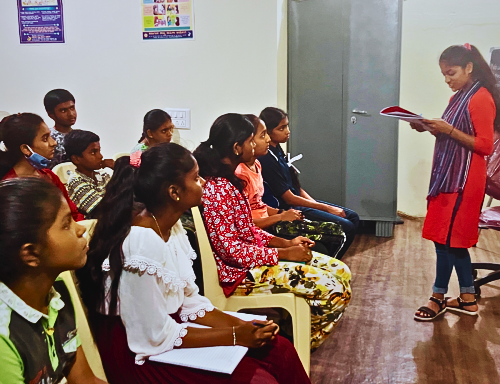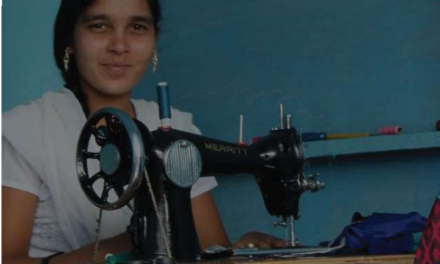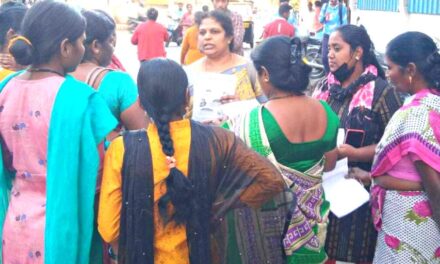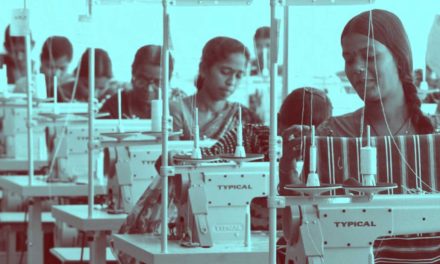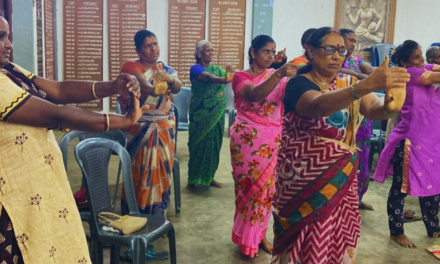Spoken English Classes By Cividep For Children Of Garment Workers Find Eager Takers
“My dream was to be a dancer but not anymore. I want to get a bank job and start earning as soon as possible to support my Amma and siblings,” says Roopa, an 18-year-old PU (pre-university) student of a private Bengaluru college.
Roopa’s plans to build a stable career in banking might not be all that easy. She is the daughter of a female garment worker, who has been working as a tailor at an export factory for close to a decade. The mother is the sole breadwinner of a family of four that includes Roopa’s brother and sister; the father passed away a year ago due to complications arising from alcoholism.
Despite the odds, the youngster remains optimistic. The same sense of aspiration is what unites the 40 students, who along with Roopa, attend the weekly spoken English classes organised by Cividep for adolescent children of garment workers with its 2021 Esther Busser Memorial prize money.
The lessons are coming in handy for this group of students. Sixteen-year-old Nikhil says that the spoken English classes have made him more confident in communicating in English. “The way grammar and language are taught through conversation and activities, makes it much easier to grasp than in school,” he says sitting at social organisation Munnade’s office where the classes are held.
Many of Nikhil’s classmates are aware that fluency in English could make them better equipped for higher education opportunities. And besides, private after-school tuitions are something they can ill-afford even for crucial subjects such as Math and Science, let alone English.
Covid Affects Education
And spoken English, or other after-class lessons are the least of the problems for children like Nikhil. Basic education of children from underprivileged backgrounds took a hit during the pandemic-related lockdowns. And this was one of the most troubling indicators that came up during Cividep’s COVID relief and vaccination support work among Bengaluru’s garment workers. The team conducted several workshops with the garment workers who were facing increased risk of infections, job loss, uncertain wages, and subsequent inability to cover basic expenses.
Field workers repeatedly came across instances of children dropping out. They noted that daughters were more likely to drop out as education of male children was prioritised. Many teenage girls joined the garment industry like their mothers. The Esther Busser award for organisations from the Global South fighting for social justice and decent work was awarded to Cividep in 2021, close on the heels of the devastating Covid second wave. The team decided to use the award money on children’s education based on Cividep’s findings about the multidimensional impacts of the pandemic on garment workers’ families.
Despite the odds, there are many who managed to continue their education, and kept alive their hopes for better futures. Ask Nikhil and he seems to have it all charted out. “My mother tells me that she wants me to never go through the difficulties that she faces on her factory floor. She has bigger dreams for me and I hope to become a doctor.”

